New class of CU Distinguished Professors: leaders in research, education, service
The University of Colorado today added 11 new members to its roster of Distinguished Professors, a title signifying the highest honor awarded to faculty across the CU system’s four campuses.
CU Distinguished Professors are tenured faculty members who demonstrate exemplary performance in research or creative work; a record of excellence in promoting learning and student attainment of knowledge and skills; and outstanding service to the profession, the university and its affiliates.
The CU Board of Regents today voted to approve the cohort of faculty members, recommended by President Todd Saliman with the concurrence of the systemwide Committee of Distinguished Professors. This year’s honorees will be formally recognized during a board meeting in spring 2022.
Including this year’s honorees, 129 Distinguished Professors have been named since inception of the title in 1977.
Distinguished Professors for 2021 are:
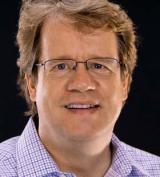
Andreas Becker, Ph.D., Physics and JILA, CU Boulder.
Becker is world-renowned in researching atomic and molecular dynamics. His particular focus is light-matter interactions. He explores fundamental interactions of atomic and molecular systems with ultrashort intense light pulses, as well as how these interactions can be productively controlled. A faculty member since 2008, he has authored or co-authored over 120 articles and has been cited over 10,000 times. He has received continuous support from the Department of Energy since his arrival in the U.S., as well as substantial support from the U.S. Air Force. Beyond his pioneering work as a theoretical researcher, Becker is one of the best and most versatile physics professors at the University of Colorado. He is highly regarded and has been named a “Favorite Professor” by the Physics Honor Society four times. Becker has been both a leader in the Department of Physics and at JILA, and is a highly successful graduate student mentor over the last decade.
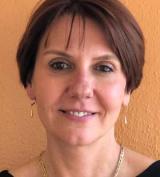
Dana Dabelea, M.D., Ph.D., Epidemiology, CU Anschutz Medical Campus.
A member of the CU faculty since 2001 and founder of the Lifecourse Epidemiology of Adiposity and Diabetes (LEAD) Center in 2015, Dabelea’s work has focused on applying a lifecourse approach to studies of diabetes in youth, which has increased substantially in recent decades. Her research design and approach has attracted numerous colleagues and trainees from multiple disciplines, embodying “team science.” She has helped place CU and the CU Anschutz Medical Campus at the forefront of diabetes studies. A leader in her field, Dabelea has authored over 368 original publications and an important book in pediatric diabetes epidemiology; has been cited over 20,000 times; and has a Research Gate index of 49.20, placing her in the top 2.5% of all biomedical researchers. Dabelea served for almost 20 years as co-chair of the SEARCH for Diabetes in Youth Study, and currently serves as chair of the ADA Scientific Planning Committee. Her scholarship has substantial practical importance, ultimately aimed at reducing the epidemic of obesity and diabetes in the U.S. and worldwide.
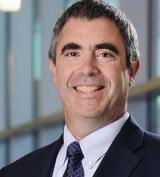
Stephen Gedney, Ph.D., Don and Karen White Professor of Electrical Engineering, CU Denver.
Gedney is a world-renowned electrical engineer who has made pioneering contributions to the research and teaching of computational electromagnetics. Not only has he created several very important theory and algorithms in the field, he also has translated these to a real-world impact. These impacts are now foundational elements of most commercial scientific and engineering software used by engineers and scientists around the world using applications from wireless communication to stealth technology. His research also has been used to design a variety of products used for national security. He joined CU in 2014 and has served as chair of Electrical Engineering and interim dean of the college. His leadership in curricular, programmatic and personnel engineers has transformed the department into one that functions at the highest level of teaching, research and service. He is an excellent teacher and graduate mentor, impacting the lives of students at all ages. He also led the creation of the Central Denver FIST Lego Robotics tournament for elementary and middle school students held at CU Denver. His career can be described as one of immense institutional, professional and personal impact.
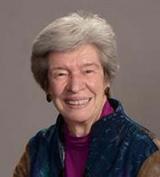
Mary Guy, Ph.D., School of Public Affairs, CU Denver.
Guy is an internationally known public administration scholar whose work has significantly impacted public administration’s scholarship and practice. A CU faculty member since 2008, she is a respected leader who pioneered the subject of emotional labor in public service, and has proven an excellent mentor. She excels at teaching, guiding numerous doctoral students toward tenure-track jobs while also holding five Best Book Awards. She has received the field’s most prestigious national awards for research and her scholarship has advanced enduring debates in the field, particularly around social equity. Guy received the CU Denver campus-wide Award for Excellence in Leadership and Service in 2015 and CU Denver’s Doctoral Student Mentoring Award in 2017. Guy is a fellow in the National Academy of Public Administration, a congressionally chartered organization, and is often asked to chair high-profile national functions. Her research, teaching, leadership and mentorship have been massively impactful in her field throughout her career.
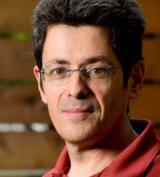
José-Luis Jimenez, Ph.D., Chemistry, CU Boulder.
Jimenez is an exceptional teacher, researcher and community member. A member of the CU faculty since 2002, he is an internationally recognized researcher in the field of atmospheric aerosols, which have significant effects on climate, air pollution and human health. His work has included developing instruments, leading international field missions and conducting innovative analysis, dramatically changing atmospheric chemistry for the better. Not only has he proven a successful and innovative researcher, his influence extends to his students. Many of Jimenez’s most-cited works are lead-authored by his Ph.D. students, demonstrating his willingness to empower the next leaders in his field. Throughout the pandemic, Jimenez applied his aerosol expertise to understanding COVID-19 transmission. Among the results of his collaborative work is the World Health Organization’s acknowledgment that the virus is transmitted by aerosols. His work has not only inspired future researchers, significantly impacted the field of atmospheric aerosols, and proved an impactful, service-oriented member of the CU community, but it also saved lives.
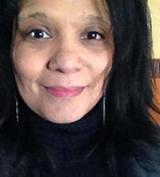
Ruth Ellen Kocher, Ph.D., English, CU Boulder.
Kocher is widely acknowledged as a central voice in Black poetics and has been a pioneer in that field. She has inspired many young poets, and trailblazed paths for Black female poets to follow. A member of the CU faculty since 2006, her dedication to CU is evident in her service in roles such as Director of the Creative Writing Program, then Department Chair, and then Divisional Dean, in addition to making lasting, impactful changes in each position. Kocher’s teaching is exemplary and is heralded as among the best in the department. As an award-winning poet, she has powerfully and creatively brought to the fore important topics such as social justice, race and anti-racism. She has authored seven volumes of poetry, with more on the way, and her poetry has appeared in 13 major anthologies. Kocher displays talent, professionalism and leadership at every level. In addition to writing poetry, she is a multimedia artist with works in film and performance. She has 12 essays in print, demonstrating her inter-arts pursuits even as she pushes boundaries within poetry. She is the winner of countless awards and recognitions, including the Beaux Boudreaux Visiting Writer Series Award from the University of Southern California (2020) and was a recipient of the National Endowment for the Arts Fellowship (2016). Her work as a teacher is exemplary, with unanimous praise from peers and students alike, who talk of her work as inspiring, impactful, and allowing them to command their own artistic crafts.
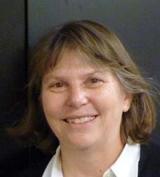
Diane McKnight, Ph.D., Institute for Arctic and Alpine Research (INSTAAR) and College of Engineering and Applied Sciences, CU Boulder.
A member of the CU faculty since 1996, McKnight has served the CU community in a number of departments including the Department of Civil, Environmental and Architectural Engineering; the Environmental Studies Program, INSTAAR; the Center for Water, Earth Science and Technology; Hydrologic Sciences Graduate Program; and the Mountain Research Station. Her scholarly work explores ecological, biogeochemical and hydrologic processes in lakes, streams and watersheds, primarily in polar and mountain regions. These field studies analyze the dynamics of these systems and apply innovative measurement tools in harsh environments. She is a leader in measuring dissolved organic matter from the spectra of its fluorescence. Her top paper has been cited over 2,000 times. Her work has made her a leader in the National Science Foundation’s Long-Term Ecological Research Network, and she has served as a Principal Investigator in a number of projects since 1997. McKnight’s work has transformed her field and has enhanced scientific understanding to the effects of climate change. She has been active in public outreach programs meant to translate science to the public, including her work on a children’s book series. An outstanding teacher and mentor of graduate students, she has served CU as a curriculum innovator in a wide variety of disciplines. Since 1996, McKnight has been the principal adviser to 24 Ph.D. students. Not only has she led groundbreaking research, furthered public knowledge and served the CU community, she has prepared the next group of researchers to do the same.
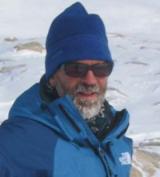
Gifford Miller, Ph.D., Department of Geological Sciences and the Institute of Arctic and Alpine Research (INSTAAR), CU Boulder.
Miller is an internationally renowned authority on Quaternary science, the study of the Quaternary period (commonly known as the ice age, and modern warm times) that began approximately 2.6 million years ago. Specifically, he has tackled important questions regarding paleoclimate in the period and his work has transformed our understanding of why significant flora and fauna changes occurred during the period. A member of the CU faculty since 1980, Miller has a golden touch for finding and choosing important problems to study and is equally legendary for solving problems using unconventional approaches. Two important questions he answered are: During the Quaternary period, how big was the arctic ice sheet? And how fast did it change? These answers, as well as several separate investigations regarding megafauna extinctions, have had drastic practical impacts on his field. As a teacher, Miller has succeeded through his students and mentees. Going beyond the classroom, he has garnered a reputation for teaching in the field, bringing students and trainees all across the globe to demonstrate the proper application of analytical tools and data analysis in some of the harshest environments on earth. Miller has served the university in a variety of positions. As chair and then faculty member of Geological Sciences, he was instrumental in the establishment of the Benson Earth Sciences Building. He also was pivotal in the design and development of the SEEC and SEEL buildings on the CU Boulder East Campus. Miller has a demonstrated record of leadership, service and innovation, and is a thought leader in his field.
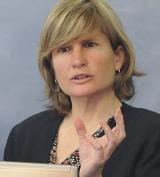
Helen Norton, J.D., Colorado School of Law, CU Boulder.
Norton is a groundbreaking constitutional scholar who has proven a thought leader in areas of the relationship between the government’s speech and the First Amendment. She was among the first to understand the complexities of this relationship, and published the seminal book on this topic, “The Government’s Speech and the Constitution” (2019). As the most influential and respectful writer on what many considered the most important aspect of legal doctrine in a crucial part of the Constitution, Norton has demonstrated excellence in her field that is unparalleled. Beyond her seminal writings, her teaching contributions have reflected that same level of dedication and inspiration. A member of the CU faculty since 2007, Norton has received several teaching awards, including the President’s Teaching Scholar (2014), and is a five-time recipient of the Excellence in Teaching Award, an honor bestowed by CU law students. Her impact on the education of law reverberates well beyond CU, as her work on government speech has impacted many law schools domestically and internationally. In her 20 years in academia, Norton has published more than 35 full-length law review articles and essays, in addition to a variety of shorter works. She is a highly sought speaker at top constitutional workshops and conferences across the nation.
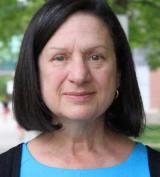
Judith Regensteiner, Ph.D., School of Medicine and Center for Women’s Health Research, CU Anschutz Medical Campus.
A member of the CU faculty since 1986, Regensteiner now holds a tenured professorship, an endowed chair, and the directorship of the Ludeman Family Center for Women’s Health Research, which she co-founded. She is a leading figure in the fields of peripheral artery disease, cardiovascular consequences of Type 2 diabetes, and women’s health and sex differences. Her areas of focus have been characterized by numerous practical accomplishments in vascular medicine research, in which she has 67 publications; cardiovascular consequences of Type 2 diabetes, in which she has over 80 publications; and 22 publications in sex differences and women’s health research. As a teacher, she has shown devotion to curriculum development, including the Ludeman Family Center for Women’s Health Research’s curriculum for training in academic skills, career development skills and methods to study women’s health and sex differences. She has been a superb mentor, having served as the primary or co-primary mentor for 22 junior faculty and postdoctoral fellows in the last five years. Regensteiner has demonstrated leadership in key positions in her field, including director of Women in Medicine and Science for the School of Medicine; principal investigator for the National Institutes of Health’s (NIH) K-12 Building Interdisciplinary Research Careers in Women’s Health award; principal investigator for the Doris Duke Fund to Retain Clinical Scientists; co-principal investigator for an NIH R01 grant on the Role of Microvascular insulin resistance and cardiorespiratory fitness in diabetes; and core director-career enhancement core, NIH Specialized Centers of Research Excellence (SCORE) on Sex Differences. Regensteiner is an accomplished scholar, director and mentor who has pioneered the field of women’s health issues and brought CU Anschutz to the forefront of these issues.
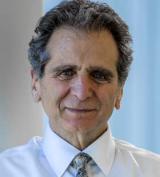
David A. Schwartz, M.D., Medicine and Immunology, CU Anschutz Medical Campus.
Schwartz has achieved an international reputation for seminal research accomplishments and has served the university both in positions of leadership and as a mentor. His work is groundbreaking and inventive, and as chair of the Department of Medicine at CU Anschutz he has helped lead the department to continual growth and development. His research examines the relationship between environmental exposures, genetic and epigenetic factors, and the development/expression of disease. His lab has had numerous groundbreaking achievements, including being the first to clone the human TLR4 gene and discovering a variation of the gene that is associated with a diminished response to lipopolysaccharide. He also has discovered that environmentally induced changes in DNA methylation and consequent changes in gene expression can direct the maturation of T lymphocytes toward a Th2 phenotype and result in the development of allergic airway disease. Schwartz is best known for his work on interstitial lung disease, particularly idiopathic pulmonary fibrosis, a progressive fatal disease with minimally effective treatment options. His discoveries have led to the recognition that genetic susceptibility, and specifically MUC5B, is the dominant cause of pulmonary fibrosis and may be a key target in understanding the pathogenesis and treatment of this disease. Schwartz is well-published in highly regarded journals and publications, and has been funded by research awards from the National Institutes of Health, Veterans Administration and the Department of Defense for over 30 years. His work has been cited more than 44,000 times. Schwartz joined CU in 2008 and since 2011 has led a faculty that has grown to more than 1,000 members. During his tenure as chair, the Department of Medicine has more than doubled its clinical activity, increased NIH support by over 60%, doubled funding from the Veterans Administration, developed training and scholarship programs for investigators and clinician-educators, and engineered a fivefold increase in the diversity of its housestaff. During the COVID pandemic, Schwartz’s leadership provided a steady, reassuring vision that resulted in the delivery of outstanding patient care, groundbreaking science, and consistent training and education. As a devoted mentor, scholar and leader, Schwartz has received many prestigious awards, including election to the American Society for Clinical Investigation and the Association of American Physicians, and the American Thoracic Society (ATS) Lifetime Scientific Achievement Award and the ATS Amberson Lecturer.

